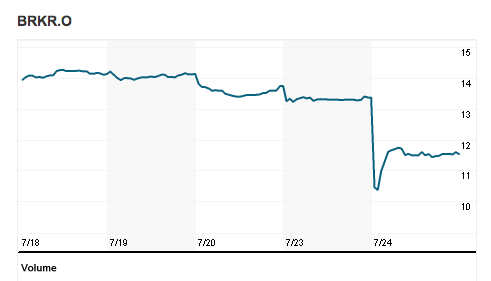He’s making it too easy for us. That self-important oracle, Trent Hamm of The Simple Dollar, created another fictitious mailbag out of the myriad emails he receives. Or as he puts it on his main page:
I do receive hundreds of questions per week,
Or as he put it a few weeks ago,
I’ll go very quickly through the thousands (yes, I do mean thousands) of emails built up during the week
In this feature we’re not just going to make fun of the dull or pointless things he says, because if we did there’d be no room for anything else. Instead, we’re going to focus strictly on the dumb and the false. Here’s an email Trent recently concocted received:
I’ve read that you shouldn’t pay more than 25% of your monthly take-home pay for housing costs.
Background info: I have an emergency fund of $7,000, I have no debt, I am 26, female, and I currently rent (living alone), paying $860/month for a one-bedroom apartment.
We’re not sure why “her” sex is relevant, or why “she” mentioned it at all, especially since “she” signed off with a woman’s name. Anyhow, “she” also gives some other information about her finances, and as women and Trent do, takes 4 paragraphs to get to the point: wanting to know if she should rent or buy a place to live.
Trent’s sage advice includes:
From my perspective, if you’re putting much more than 25% of your income toward your housing, you’re starting to put yourself in a risky situation.
No way! “Lauren” repeated a piece of folkloric homespun wisdom, and Trent seconded it exactly! Kind of like the time Control Your Cash ran a question from the woman who’d heard that male personal finance bloggers are extremely well-endowed, and wanted confirmation.
Anyhow, Trent recommends that “Lauren”
get a mortgage quote, then run some calculations on it.
Really? So if a person wants to choose between items A and B, and knows how much A costs, you believe she should determine how much B costs before she proceeds?
We can’t argue as to whether Trent or “Lauren” is the bigger imbecile, since they’re the same person. However, we can have a legitimate debate as to whether Trent/”Lauren” or Trent’s average reader is stupider. Anyone who finds any of the advice in Trent’s mailbag to be actionable is clearly forgetting to exhale once in a while.
He’s not done. Here’s the next (and final) line, with nothing omitted:
The housing market is depressed enough right now that I would not look at a home as an investment in the short term.
YES, BECAUSE WHY WOULD ANYONE WANT TO BUY WHEN PRICES ARE LOW? Does his helper monkey even proofread this stuff for logical coherence before pressing “Publish”?
How about loosening another belt notch on your husky Today’s Man slacks and writing something that makes sense? Don’t worry, we’ll do it for you:
The housing market is depressed enough right now, and mortgage rates similarly low, that there will never be a better time to buy a house. Or houses. A passive income stream will do more for your bottom line than all of my penny-shaving recommendations combined.
In any other blogger’s mailbag, that’d be the most laughable response of the week. But this is Trent Hamm, proprietor of The Simple Dollar. He probes depths that the bathyscaphe Trieste wouldn’t plunge to:
My 75 year old mother is in mediocre health. She’s losing the place she’s living in and needs to move in the new year.
…
I will be earning a big chunk of money in the first part of the new year and would like to buy a home for her to live in…
Pretty straightforward, right? Well, it’s straightforward if you edit out all the irrelevant details that Trent puts in to make the “reader” sound more human. This one’s another female, by the way. Why any woman would seek his advice after he told the entire distaff half of the species to swim in their underwear, we have no idea. Anyhow, he tells “Sheila” not to worry because time is on her side:
I would rent an apartment for her. If her health is slipping, it’s likely that the period of time you would rent would be limited.
We’ll get to the obvious objection in a second, but is Trent’s reading comprehension so awful that he can’t remember what his own blog said just a few lines earlier? “Mediocre” means average. It’s static, and doesn’t imply a direction. Trent took it to mean “slipping”, which makes us wonder exactly where he graduated among the cab drivers and slaughterhouse workers in his ESL class.
And oh yeah, he just told a reader that a great way to save on housing expenses is to wait for your mother’s imminent death.
We’ll ask this now, before the inanity of The Simple Dollar becomes a weekly feature: is this all an intricate joke, and we’re the patsies? If you were a resourceful online comedian who wanted to create a parody of an everyman dispensing financial advice, wouldn’t you give him a forgettable work history, a green golf shirt, 2.3 kids and a home in Nowhere, Iowa? No real person can be this earnest, this humorless, this insipid, this cheap, and this consistent about it. Here, read an entertaining mailbag instead.





